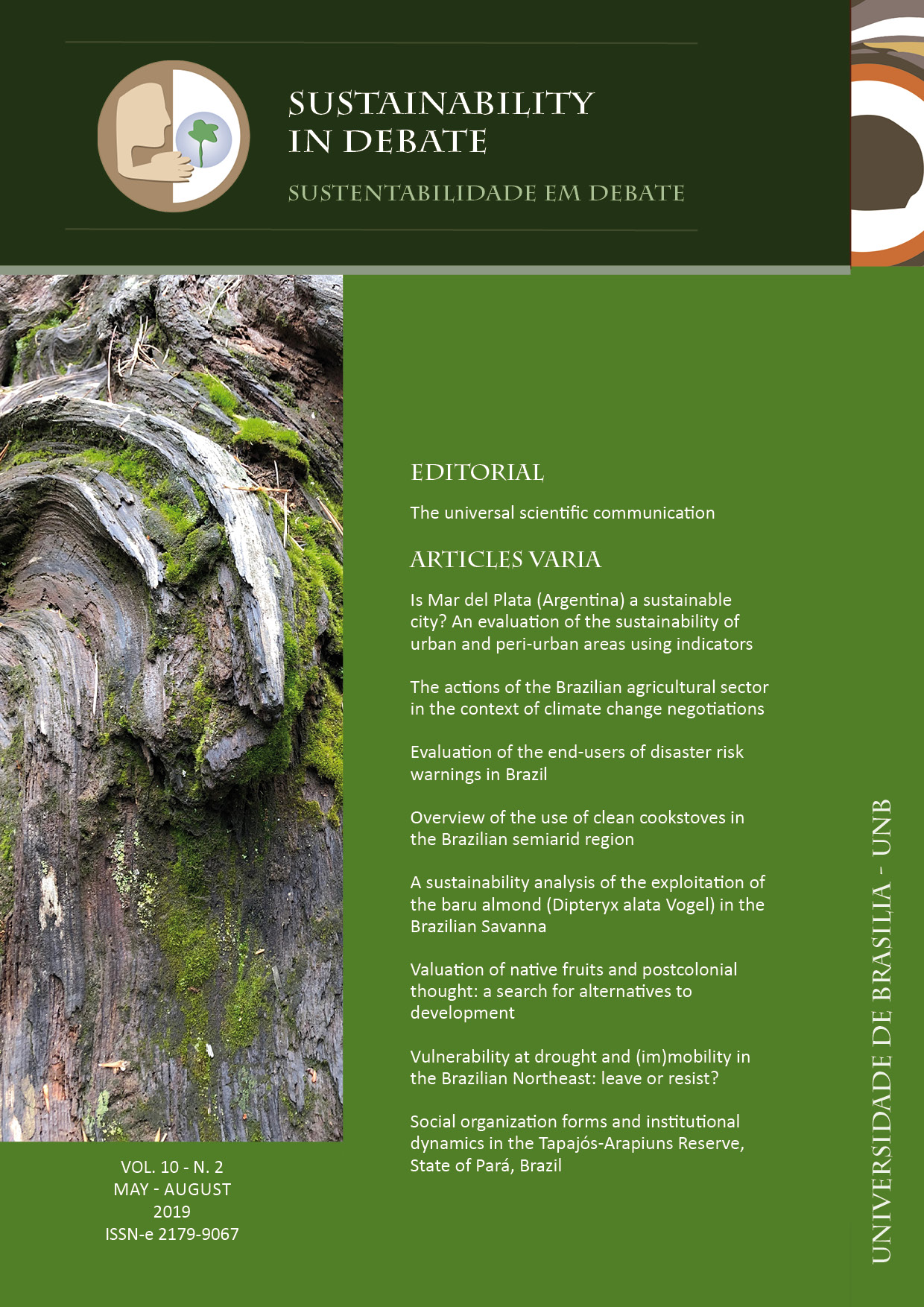Social organization forms and institutional dynamics in the Tapajós-Arapiuns Reserve, state of Pará, Brazil
DOI:
https://doi.org/10.18472/SustDeb.v10n2.2019.19809Keywords:
Instituições; Unidades de Conservação; Aparatos Institucionais; Mudanças Sociais.Abstract
In this text, we will discuss the interdependence in processes that influence, directly or indirectly, the conditions of natural resources’ appropriation and list social interactions that will draw corresponding institutional frameworks to which dwellers of the Tapajós-Arapiuns Extractive Reserve will affiliate. The research that supports this paper has a multidisciplinary character, relying on the usage of various tools for obtaining information. The analytical notion of institutions (formal and informal rules) has been used to reference the developed interpretations. The considered object of analysis reflects over practices in the
dwellers’ way of life, taking into account the alternatives of correlation between social organization and production practices. It is perceived that dwellers’ social frameworks of organization were constructed, not only by traditional institutional apparatus, but also by using coordination instruments and landuse planning, to manage common resources. These principles create an institutional order based on a presumed rationality, with distinct unfoldings and social impacts.
Downloads
Published
Issue
Section
License
Copyright (c) 2019 Sustentabilidade em Debate

This work is licensed under a Creative Commons Attribution-NonCommercial-NoDerivatives 4.0 International License.
SUSTAINABILITY IN DEBATE – Copyright Statement
The submission of original scientific work(s) by the authors, as the copyright holders of the text(s) sent to the journal, under the terms of Law 9.610/98, implies in the concession of copyrights of printed and/or digital publication to the Sustainability in Debate Journal of the article(s) approved for publication purposes, in a single issue of the journal. Furthermore, approved scientific work(s) will be released without any charge, or any kind of copyright reimbursement, through the journal’s website, for reading, printing and/or downloading of the text file, from the date of acceptance for publication purposes. Therefore, the authors, when submitting the article (s) to the journal, and gratuitous assignment of copyrights related to the submitted scientific work, are fully aware that they will not be remunerated for the publication of the article(s) in the journal.
The Sustainability in Debate Journal is licensed under Creative Commons License – Non-Commercial-No-Derivation Attribution (Derivative Work Ban) 3.0 Brazil, aiming at dissemination of scientific knowledge, as indicated on the journal's website, which allows the text to be shared, and be recognized in regards to its authorship and original publication in this journal.
Authors are allowed to sign additional contracts separately, for non-exclusive distribution of the works published in the Sustainability in Debate Journal (for example, in a book chapter), provided that it is expressed the texts were originally published in this journal. Authors are allowed and encouraged to publish and distribute their text online, following publication in Sustainability in Debate (e.g. in institutional repositories or their personal pages). The authors expressly agree to the terms of this Copyright Statement, which will be applied following the submission and publishing by this journal.








